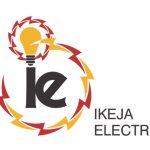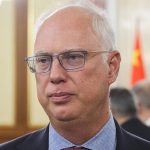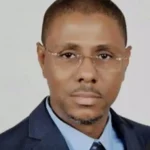World
Pathways Towards Africa’s Energy Security
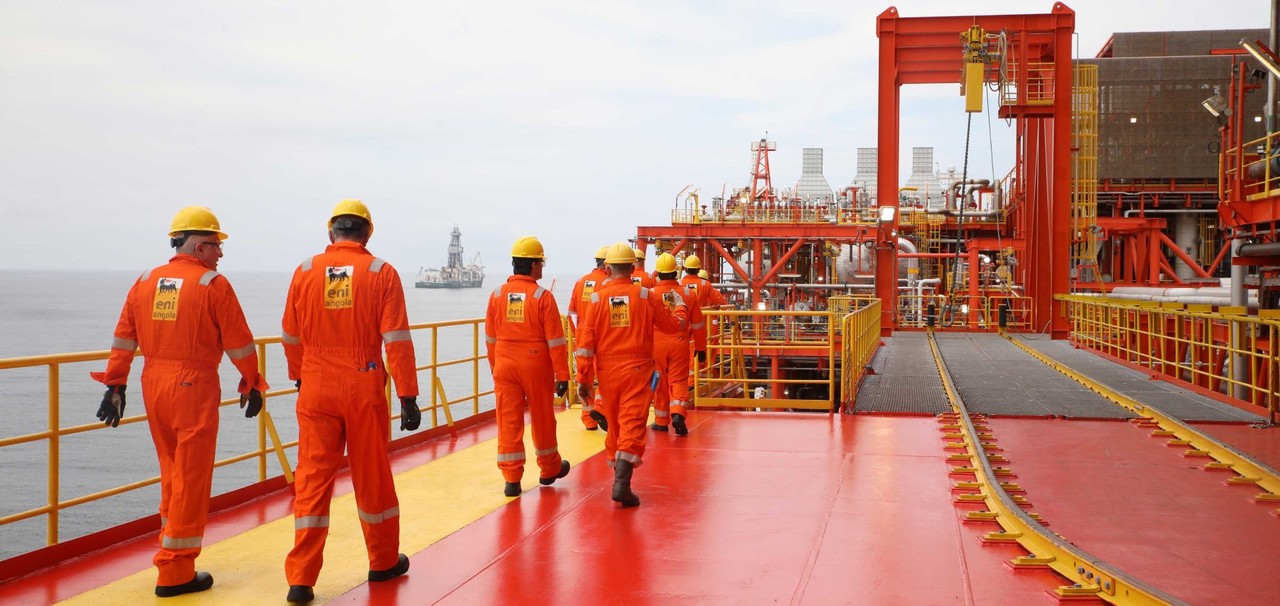
By Kestér Kenn Klomegâh
Today, African countries face major challenges in ensuring energy security. Several reports indicate Africa is experiencing rapid population growth, rising unemployment, persistent ethnic conflicts and a lack of good governance. Research further shows worsening energy crisis combined with the factors mentioned are seriously constraining economic growth on the continent.
It is clear that to solve these problems a large-scale development programme is required, including a strategy based on achieving the UN sustainable development goals. Experts believe that nuclear technologies can become a driver for socio-economic development and a comprehensive solution to systemic continent-wide problems. Others trust and argue that ‘energy mix’ as a more sustainable way out in creating the energy base for domestic utilization and for industrialization.
Energy is highly essential for aspects of large-scale development. The energy deficit is severely hampering Africa’s efforts to improve the quality of life, hindering effective industrial production. World Bank President, Ajay Banga, and his AfDB counterpart, Dr Akinwumi Adesina, have stated approximately 600 million Africans lack access to electricity (energy) and this unfortunate situation is creating significant barriers to health care, education, productivity, digital inclusivity, and ultimately job creation.
On their part, the World Bank and the African Development Bank (AfDB) are partnering to provide electricity access to, at least, 300 million people in Africa by 2030. According to Banga and Adesina, it would require an additional policy action from African governments, financing from multilateral development banks, and private sector investment to see this through. This also depends on the kind of energy provided in Africa.
That however, leaders of African governments are keenly interested in adopting nuclear energy to end chronic power deficit but some maybe forced either to keep on postponing or completely abandon the project primarily due to lack of finance or credit guarantees.
Within the framework of the 2018 BRICS (Brazil, Russia, India, China and South Africa) summit held in Johannesburg, South African President Cyril Ramaphosa told his counterpart, Vladimir Putin, at a bilateral meeting that South Africa was not ready to renew the agreement on the construction of nuclear power plants in South Africa.
Putin raised the subject of a nuclear deal at a private meeting with Ramaphosa, but his host said Pretoria could not sign such a deal for now. Ramaphosa has put nuclear expansion on the back burner since taking office as president, saying “it is too expensive” and has focused instead on election campaign pledges to revive the economy and crackdown on corruption.
Ramaphosa said “We have to look at where the economy is – we have excess power and we have no money to go for a major nuclear plant building. The nuclear process has to be looked at in the broad context of affordability.”
Under Jacob Zuma, South Africa championed plans to build as many as eight reactors that would generate 9,600 megawatts of energy starting from 2023 and cost as much as $84 billion – a programme critics say the country can’t simply afford and doesn’t absolutely need.
There is only one nuclear power plant on the entire African continent, namely, the Koeberg nuclear power station in South Africa. Commissioned in 1984, Koeberg provides nearly 2,000 megawatts which is about 5% of installed electricity generation in South Africa.
Russian Foreign Minister Sergey Lavrov reiterated, as always, in an interview with the Hommes d’Afrique magazine posted to the ministry’s official website, that Russia and African countries were cooperating on high technology and Russia is highly committed to contributing towards sustainable development in Africa.
According to him, “Rosatom is considering several projects that are of interest to Africans, for instance, the creation of a nuclear research and technology centre in Zambia. Nigeria has a similar project. There are good prospects for cooperation with Ghana, Tanzania and Ethiopia. Talks are underway on the construction of a nuclear power plant in South Africa.”
Foreign and local Russian media further reported that Russia wanted to turn nuclear energy into a major export industry. It has signed several agreements with as many as 14 African countries with no nuclear tradition, including Rwanda and Zambia, and is set to build a large nuclear plant in Egypt.
“Indeed, Rwanda has just joined the chorus by signing an MOU with the Russians to build a nuclear power plant. This is something of a joke. How will this be financed? Rwanda’s annual budget is US$3 billion. A nuclear power plant will cost not less than $9 billion which is equivalent to Rwanda’s entire Gross Domestic Product,” David Himbara, Rwandan-Canadian Professor of International Development at Canada’s Centennial College, wrote me in an emailed interview query.
Professor Himbara said that Rwandan President Paul Kagame always believed that he must validate his supposedly visionary and innovative leadership by pronouncing grand projects that rarely materialized.
Nonetheless, Ghana has also signed a Memorandum of Agreement with the State Atomic Energy Corporation of the Federation of Russia for the construction of a nuclear power plant. The plant will produce up to 1,200 megawatts. The Russian reactor will cost a minimum of $4.2 billion. The financing scheme has not been finalized. It will take about eight to ten years from site feasibility studies to the commissioning of the first unit.
The International Atomic Energy Agency’s 2017 Report concluded that Ghana is still in an early phase of developing nuclear energy. So far, Ghana has enacted a comprehensive nuclear law and established an independent Nuclear Regulatory Authority.
In June 2024, Dr Robert Sogbadji, deputy director in charge of nuclear and alternative energy, explained to this article author that Ghana would select, by December 2024, a foreign company to build its first nuclear power plants. Ghana is working steadily with its vendor partners with serious considerations on favourable financial terms and technology. Currently, Ghana has identified two sites to accommodate its first nuclear power plant and is ready to identify a vendor country and technology by the end of 2024. Russia, China, France, the United States and Korea are the leading contenders for vendor identification.
In accordance the Ghana Energy Transition Framework, Ghana seeks to provide energy security and address energy poverty as well as reduce the cost of electricity by further diversifying the energy mix with gas thermal, hydro power, nuclear power, solar, wind and other modern renewables. Since Ghana has exhausted all its large hydro potentials, Ghana seeks to nuclear and gas thermal power as the base-load to support the intermittent renewables.
In the case of Zambia, under the agreement that was concluded in December 2016 to build a nuclear deal worth $10 billion. Shadreck Luwita, Zambian Ambassador to the Russian Federation, informed that the processes of design, feasibility study and approvals regarding the project have almost been concluded.
The Zambian Government hopes that upon commissioning of this project, excess power generated from this plant could be made available for export to neighbouring countries under the Southern African Development Community Power Pool framework arrangement, he said.
In late February 2020, Chairperson of the Federation Council (the Upper House or the Senate), Valentina Matviyenko, headed a Russian delegation on a three-day working visit aimed at strengthening parliamentary diplomacy with Namibia and Zambia.
According to an official release from the Federation Council, the visit was within the broad framework mechanism of parliamentary consultations between Russia and African countries. The key focus are on political dialogue, economic partnership and humanitarian spheres with Namibia and Zambia.
The delegation held talks with President Edgar Lungu at the State House in Lusaka, Zambia. The delegation referred to their visit “as a reciprocal visit” and emphasized unreserved commitment to strengthen political dialogue and then re-affirmed interests in broadening economic cooperation with Zambia.
There was an in-depth discussion construction of the nuclear plant. Under the agreement that was concluded in December 2016 the construction of the nuclear plant was estimated at $10 billion. The processes of design, feasibility study and approvals regarding the project concluded. Russia was unprepared to make a financial commitment, and Zambia lacked adequate funds to finance the project.
Matviyenko said: “Now the start of the construction of a center for nuclear science and technology has been suspended due to financial issues. I would like to say that the request submitted to the Russian president is being carefully considered by the ministries and departments. I’m confident that we will jointly find options to promote funding to roll out the construction of a centre for nuclear science and technology.”
Of course, the construction of the nuclear plants will qualitatively change the economy of Zambia, not only to fully meet its electricity needs, but also to export it to other southern African countries. The Zambian government refers to it as revenue generation tool using the phrase – “this plant could make available for export to neighbouring countries under the Southern African Development Community Power Pool framework arrangement.”
In his discussion, Dr. Scott Firsing, a Research Fellow at Monash University South Africa, says Africa and the world needs nuclear, along with solar, wind, hydro, and geothermal, for cleaner energy. Africa can leapfrog outdated technology and help lead a new clean energy revolution.
He believes that “nuclear will always have a role in energy generation because it’s the best way of producing large amounts of carbon-free electricity. The key hindrance is the cost of producing nuclear energy and how best to deal with nuclear waste so as to maintain safe environment, the risk that it poses from poor handling and management.”
Professor Stephen Thomas, a Nuclear Economist from the University of Greenwich in the United Kingdom explains that African countries lack the nuclear expertise and infrastructure, Most important, they lack the financing capability. Russia claims to offer adequate finance, but that claim of preparedness to support construction of nuclear plants across Africa has not been demonstrated outside centrally planned economy.
“Nuclear power is an expensive diversion from policies that could meet the objectives of improving the reliability of electricity supplies in Africa, making power affordable for consumers and meeting environmental goals,” he wrote in an emailed interview.
Thomas added: “Nuclear is too high an economic risk for countries that cannot afford to make big mistakes. However, they must be guided by Chernobyl disaster in Ukraine and Fukushima in Japan, millions of people are still suffering from radiation and radiation related diseases till today.”
Currently, many African countries are facing an energy crisis, for both domestic and industrial use. Energy poverty affects millions of their citizens. Over 600 million in Sub-Saharan Africa out of more than one billion people still do not have electricity. The industrial sector needs power for its operations and production for the newly established single continental market.
It is in this context that several African countries are exploring nuclear energy as part of the solution. Russia is on a charm offensive across Africa signing and re-signing agreements with many governments to build nuclear power plants. After the first Russia-Africa summit, it has, as an exceptional case, granted a $29 billion loan for construction in Egypt based on its strategic bilateral relations.
The nuclear agreement was signed as far back as 2015. For now, it is difficult to say how other African countries would finance the construction of their plants compared with Francophone African leaders bartering their natural resources for Russia to provide security and undertake various infrastructure projects. Burkina Faso’s nuclear ambitions went viral after signing a memorandum of understanding, not yet an agreement, over nuclear power with Russia in 2023.
For more than 30 years, Russia has been pushing for post-Soviet relations, but with nuclear energy diplomacy Africans have to wait for another generation. The dreams of building nuclear plants are, in other words, far from reality, and will hold back the full realization of the African Continental Free Trade Area (AfCFTA) and sustainable development goals under AU Agenda 2063.
World
TikTok Signs Deal to Avoid US Ban

By Adedapo Adesanya
Social media platform, TikTok’s Chinese owner ByteDance has signed binding agreements with United States and global investors to operate its business in America.
Half of the joint venture will be owned by a group of investors, including Oracle, Silver Lake and the Emirati investment firm MGX, according to a memo sent by chief executive, Mr Shou Zi Chew.
The deal, which is set to close on January 22, 2026 would end years of efforts by the US government to force ByteDance to sell its US operations over national security concerns.
It is in line with a deal unveiled in September, when US President Donald Trump delayed the enforcement of a law that would ban the app unless it was sold.
In the memo, TikTok said the deal will enable “over 170 million Americans to continue discovering a world of endless possibilities as part of a vital global community”.
Under the agreement, ByteDance will retain 19.9 per cent of the business, while Oracle, Silver Lake and Abu Dhabi-based MGX will hold 15 per cent each.
Another 30.1 per cent will be held by affiliates of existing ByteDance investors, according to the memo.
The White House previously said that Oracle, which was co-founded by President Trump’s supporter Larry Ellison, will license TikTok’s recommendation algorithm as part of the deal.
The deal comes after a series of delays.
Business Post reported in April 2024 that the administration of President Joe Biden passed a law to ban the app over national security concerns, unless it was sold.
The law was set to go into effect on January 20, 2025 but was pushed back multiple times by President Trump, while his administration worked out a deal to transfer ownership.
President Trump said in September that he had spoken on the phone to China’s President Xi Jinping, who he said had given the deal the go ahead.
The platform’s future remained unclear after the leaders met face to face in October.
The app’s fate was clouded by ongoing tensions between the two nations on trade and other matters.
World
United States, Russia Resolving Trade Issues, Seeking New Business Opportunities
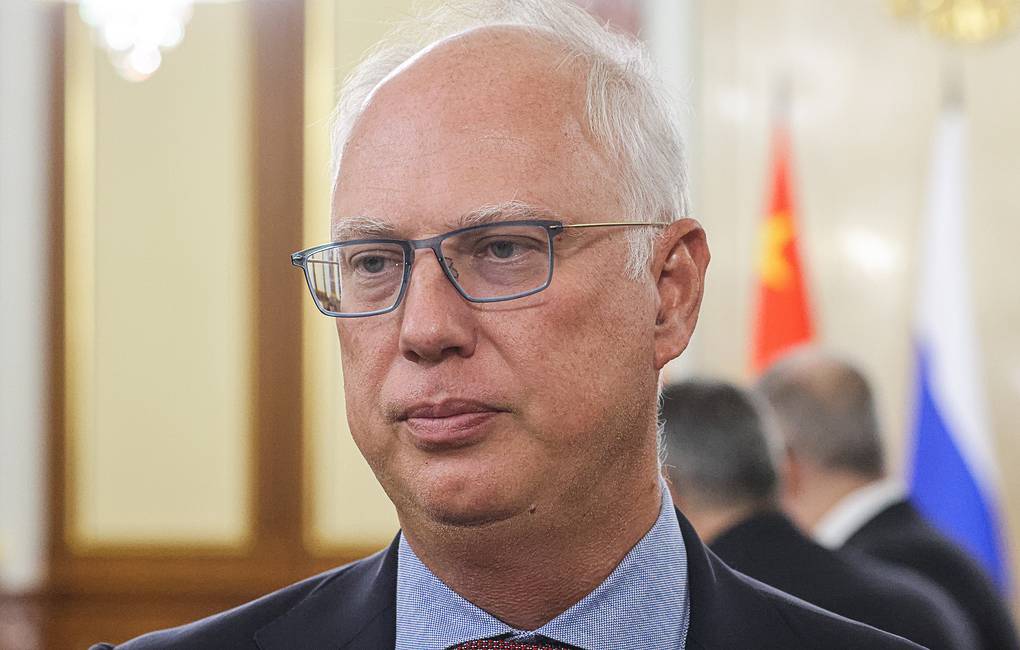
By Kestér Kenn Klomegâh
Despite the complexities posed by Russia-Ukraine crisis, United States has been taking conscious steps to improve commercial relations with Russia. Unsurprisingly, Russia, on the other hand, is also moving to restore and normalise its diplomacy, negotiating for direct connections of air-routes and passionate permission to return its diplomats back to Washington and New York.
In the latest developments, Kirill Dmitriev, Chief Executive Officer of the Russian Direct Investment Fund (RDIF), has been appointed as Russian President’s Special Envoy to United States. This marked an important milestone towards raising bilateral investment and economic cooperation. Russian President Vladimir Putin tasked him to exclusively promote business dialogue between the two countries, and further to negotiate for the return of U.S. business enterprises. According to authentic reports, United States businesses lost $300+ bn during this Russia-Ukraine crisis, while Russia’s estimated 1,500 diplomats were asked to return to Moscow.
Strategically in late November 2025, the American Chamber of Commerce in Russia (AmCham) has awarded Kirill Dmitriev, praised him for calculated efforts in promoting positive dialogue between the United States and Russia within the framework decreed by President Vladimir Putin. Chief Executive Officer of Russian Direct Investment Fund (RDIF) Kirill Dmitriev is the Special Representative of the Russian President for Economic Cooperation with Foreign Countries. Since his appointment, his primary focus has been on United States.
“Received an American Chamber of Commerce award ‘For leadership in fostering the US-Russia dialogue,’” Dmitriev wrote on his X page, in late November, 2025. According to Dmitriev, more than 150 US companies are currently operating in Russia, with more than 70% of them being present on the Russian market for over 25 years.
In addition, Chamber President Sergey Katyrin and American Chamber of Commerce in Russia (AmCham) President Robert Agee have also been discussing alternatives pathways to raise bilateral business cooperation. Both have held series of meetings throughout this year, indicating the the importance of sustaining relations as previously. Expectedly, the Roscongress Foundation has been offered its platforms during St. Petersburg International Economic (SPIEF) for the American Chamber of Commerce (AmCham).
On December 9, Sergey Katyrin and Robert Agee noted that, despite existing problems and non-economic obstacles, the business communities of Russia and the United States proceed from the necessity of maintaining professional dialogue. Despite the worsening geopolitical conditions, Sergey Katyrin and Robert Agee noted the importance of preserving stable channels of trade and pragmatic prospects for economic cooperation. These will further serve as a stabilizing factor and an instrument for building mutual trust at the level of business circles, industry associations, and the expert community.
The American Chamber of Commerce (AmCham) will be working in the system of the Chamber of Commerce and Industry (CCI) in the Russian Federation, which currently comprises 57,000 legal entities, 130 regional chambers and a combined network of representative offices covering more than 350 points of presence.
According to reports obtained by this article author from the AmCham, promising sectors for Russian-American economic cooperation include healthcare and the medical industry, civil aviation, communications/telecom, natural resource extraction, and energy/energy equipment. The United States and Russia have, more or less, agreed to continue coordinating their work to facilitate the formation of a more favorable environment for Russian and American businesses, reduce risks, and strengthen business ties. Following the American-Russian Dialogue, a joint statement and working documents were adopted.
World
Reviewing the Dynamics of Indian–Russian Business Partnership
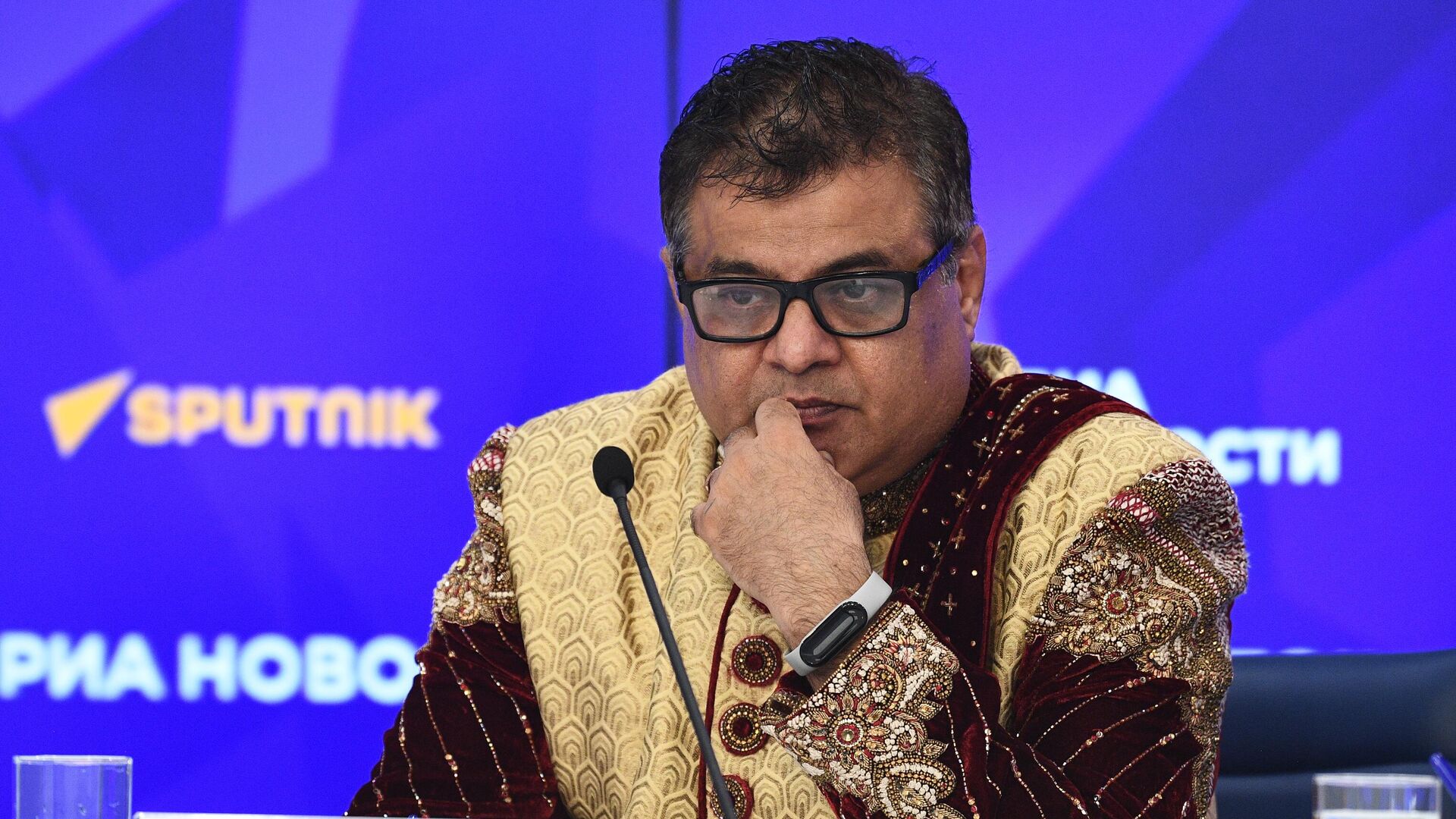
By Kestér Kenn Klomegâh
The Executive President of the Indian Business Alliance (IBA), Sammy Manoj Kotwani, discusses the landmark moment in deepening Russian-Indian collaboration. Kotwani explains the groundbreaking insights into President Vladimir Putin’s working visit to India, the emerging opportunities and pathways for future cooperation, especially for the two-sided economic collaboration. Follow Sammy Manoj Kotwani’s discussions here:
Interpretation of the latest development in Russian-Indian relations
From my viewpoint in Moscow, this visit has effectively opened a new operational chapter in what has always been described as a “Special and Privileged Strategic Partnership.” It did not just reaffirm political goodwill; it translated that goodwill into a structured economic roadmap through Programme 2030, a clear target to take bilateral trade to around USD 100 billion by 2030, and concrete sectoral priorities: energy, nuclear cooperation, critical minerals, manufacturing, connectivity, fertilizers, and labour mobility.
On the ground, the business community reads this summit as a strong signal that India and Russia are doubling down on strategic autonomy in a multipolar world order. Both sides are trying to de-risk their supply chains and payment systems from over-dependence on any single centre of power. This is visible in the focus on national currencies, alternative payment mechanisms, and efforts to stabilise Rupee–Ruble trade, alongside discussions on a Free Trade Agreement with the Eurasian Economic Union and the reinforcement of corridors like the INSTC and the Chennai–Vladivostok route.
In short, my interpretation is that this summit has moved the relationship from “politically excellent but structurally imbalanced” towards a more diversified, long-term economic framework in which companies are expected to co-produce, co-innovate, and invest, not just trade opportunistically.
Significance of the visit for Indian business in Russia and for the Indian Business Alliance (IBA)
For Indian business operating in the Russian Federation, the visit has three immediate effects: confidence, clarity, and continuity. Confidence, because Indian entrepreneurs now see that despite external pressure, New Delhi and Moscow have explicitly committed to deepening economic engagement—especially in energy, fertilizers, defence co-production, nuclear, and critical minerals—rather than quietly scaling it back.
Clarity, because the summit outcomes spell out where the real opportunities lie:
Energy & Petrochemicals: Long-term crude and LNG supply, but also downstream opportunities in refining, petrochemicals, and logistics, where Indian EPC and service companies can participate.
Pharmaceuticals & Medical Devices: Russia’s import substitution drive makes high-quality Indian generics, formulations, and even localized manufacturing extremely relevant.
IT, Digital & AI: There is growing appetite in Russia for Indian IT services, cybersecurity, and digital solutions that are not dependent on Western tech stacks.
Fertilizers, Agro & Food Processing: New joint ventures in fertilizers and agriculture supply chains were explicitly flagged during and around the summit, which is important for both food security and farm incomes.
Continuity, because the Programme 2030 framework and the expected EAEU FTA give businesses a medium-term policy horizon. Tariff reductions, improved market access and predictable regulation are precisely what Indian SMEs and mid-sized companies need to justify long-term investments in Russia.
For the Indian Business Alliance (IBA), this inevitably means more work and more responsibility. We already see increased incoming requests from Indian firms—from large listed companies to first-time exporters—asking very practical questions: Which Russian region should we enter? How do we navigate compliance under the sanctions environment? Which banks are still handling Rupee–Ruble or third-currency settlements? How can we structure joint ventures to align with Russia’s import substitution goals while protecting IP and governance standards?
IBA’s role, therefore, becomes that of economic diplomacy in action: translating high-level summit language into actual B2B meetings, sectoral delegations, regional partnerships, and deal-making platforms such as the India–Russia Business Dialogue in Moscow. This visit will undoubtedly stimulate and intensify IBA’s work as a bridge between the two ecosystems.
India’s current economic presence in the Russian Federation
If we look beyond the headline trade figures, India’s economic presence in Russia today is significant, but not yet commensurate with its potential. Bilateral trade has grown sharply since 2022, largely on the back of discounted Russian oil and coal, making India one of Russia’s top energy customers. However, the structure is still heavily skewed: Russian exports to India dominate, while Indian exports and investments in Russia remain relatively modest and under-diversified.
On the ground in Moscow and across the regions, we see several strong Indian footholds:
Pharmaceuticals: Indian pharma is well-established, respected for its affordability and quality, and poised to deepen localization in line with Russian import substitution policy.
Tea, Coffee, Spices & Food: Traditional segments with deep historical roots, now expanding into ready-to-eat, wellness, and ethnic food categories.
IT & Services: Still under-represented, but with growing interest as Russian entities look for non-Western software, integration, and outsourcing partners.
Diamonds, Textiles, Apparel, and Light Engineering: Present but fragmented, with enormous room to scale, especially if logistics and payment challenges are addressed.
Where India is still behind is on-the-ground investment and manufacturing presence compared to countries like China. Russian policymakers today are clearly favouring investors who help them achieve technological sovereignty and local value addition. For serious Indian companies willing to commit capital, adapt to Russian standards, and accept the complexities of the current environment, this is a period of unusual opportunity. For purely transactional players looking for quick arbitrage, it is becoming progressively harder.
So, I would characterise India’s economic presence as: strategically important, quickly growing in value, but still under-leveraged in terms of depth, diversification, and localization.
Geopolitical pressure from Washington and future predictions
Pressure from Washington—through sanctions, secondary sanctions risk, financial restrictions, and now even tariff measures linked to India’s energy purchases from Russia—is undoubtedly a real and continuing challenge. It affects everything from shipping insurance and dollar transactions to technology transfers and the risk appetite of global banks. In practical terms, it can complicate even a simple India–Russia trade deal if it touches a sanctioned bank, vessel, or technology.
However, my own assessment, based on 35 years of living and working in Russia, is that this pressure will not fundamentally derail India–Russia friendship, but it will reshape how the relationship functions. India’s foreign policy is anchored in strategic autonomy; it seeks strong ties with the United States and Europe, but not at the cost of abandoning a time-tested partner like Russia. Russia, for its part, sees India as a crucial Asian pole in an emerging multipolar world order and as a long-term market, technology partner, and political counterpart in forums like BRICS, SCO, and the G20.
Looking ahead, I see a few clear trends:
Normalization of alternative payment and logistics systems
We will see more institutionalised use of national currencies, alternative messaging systems, regional banks outside the direct sanctions line, and maybe even digital currencies for specific corridors. Rupee–Ruble trade mechanisms that are today seen as “workarounds” will gradually become part of the normal infrastructure of bilateral commerce.
Shift from pure trade to co-production and joint innovation
To reduce vulnerability to sanctions, both sides will push for manufacturing in India and Russia rather than simple exports: defence co-development, localized pharma and medical devices, high-tech and AI collaborations, and joint ventures in critical minerals and clean energy.
Greater role for regions and business associations
Regional governments in Russia (Far East, Arctic regions, industrial hubs) and Indian states will increasingly drive project-level cooperation, supported by platforms like IBA. This “bottom-up” economic diplomacy will make the relationship more resilient than if it relied only on central governments.
Managed balancing by India
India will continue to deepen technology and investment ties with the West while maintaining energy, defence and strategic cooperation with Russia. The challenge will be to manage U.S. and EU expectations without compromising its core national interests. My prediction is that India will stay firm on this course of balanced engagement, even if it means occasional friction with Washington.
In essence, external pressure may complicate the methods of Indo-Russian cooperation, but it is unlikely to overturn the foundations of trust, mutual interest, and long-term complementarity that have been built over decades.
-

 Feature/OPED6 years ago
Feature/OPED6 years agoDavos was Different this year
-
Travel/Tourism9 years ago
Lagos Seals Western Lodge Hotel In Ikorodu
-

 Showbiz3 years ago
Showbiz3 years agoEstranged Lover Releases Videos of Empress Njamah Bathing
-

 Banking7 years ago
Banking7 years agoSort Codes of GTBank Branches in Nigeria
-

 Economy3 years ago
Economy3 years agoSubsidy Removal: CNG at N130 Per Litre Cheaper Than Petrol—IPMAN
-

 Banking3 years ago
Banking3 years agoFirst Bank Announces Planned Downtime
-

 Banking3 years ago
Banking3 years agoSort Codes of UBA Branches in Nigeria
-

 Sports3 years ago
Sports3 years agoHighest Paid Nigerian Footballer – How Much Do Nigerian Footballers Earn






